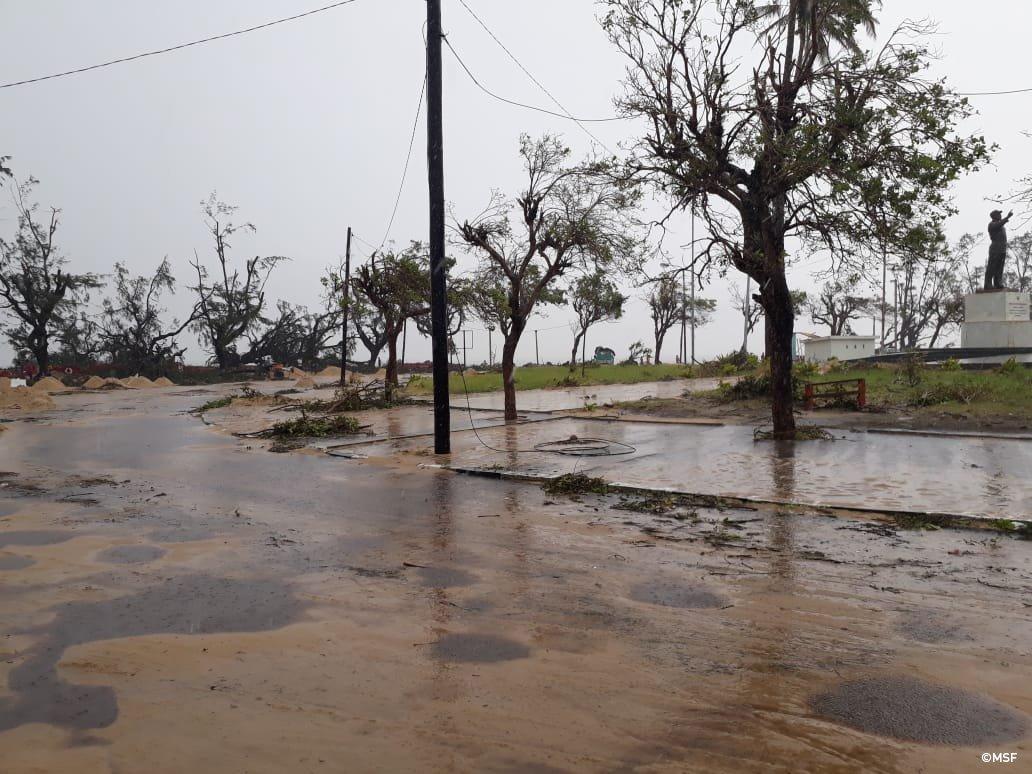Gert Verdonck, MSF emergency coordinator in Beira, Mozambique - 19 March 2019
“The first thing you see when you arrive is destruction – and a lot of water. We hear that the situation outside the town maybe even worse, but in the limited time since we got here we’ve focused on trying to understand the situation and needs in this city, as there are some 500,000 inhabitants and most houses are damaged or destroyed.
The water system is out of service, so there are large areas where people are really finding it difficult to find sources of clean water. Especially in the most densely populated and poorest neighbourhoods.
Find out more MSF's response to Cyclone Idai here.
Life goes on, sort of. People go back to work and start to look for food, but you see uprooted trees everywhere lying on the ground, you see people trying to repair their homes, you see people trying to cover the hole where there used to be a roof. It is still raining hard. I am sure it is going to be a while before the water recedes.
It’s hard at this stage to have a clear picture of the medical needs. Actually, it’s even hard just to get to the health centres, because the roads are destroyed or because the health centres themselves are destroyed. I think that’s our biggest challenge right now. And it’s also a challenge for the Ministry of Health, who are trying to re-establish healthcare as quickly as possible.

Waterborne disease is certainly a worry here. People are using well-water with no chlorination, and that water is unlikely to be clean and safe to drink. Those with more money can still buy bottled water, but not everyone can afford this.
And respiratory diseases too. It is still raining right inside people’s houses, so pneumonia is going to be a problem. And many people are gathered in schools or churches, where respiratory diseases can easily spread.
On top of all of that, there’s the issue of how to treat people who fall sick – with so many health centres damaged or destroyed.
But really, and I want to stress this point, it is too early to paint a clear picture of the exact health needs. We’ll start responding to the main needs we see, but at the same time we’ll be developing a better understanding day by day of where our assistance can have the most impact, and we’ll scale up our response accordingly.”
Find out more about MSF's response to Cyclone Idai in Southern Africa here.
